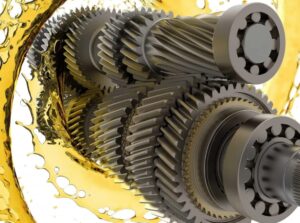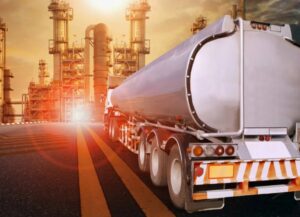Liquefied Natural Gas (LNG): Benefits, Uses & Why You Should Switch Today
The global energy sector is undergoing a significant transformation, driven by the urgent need for cleaner, more efficient, and sustainable fuel alternatives. Among the most promising solutions is Liquefied Natural Gas (LNG), which offers a compelling combination of environmental benefits, cost efficiency, and versatility. As nations and industries strive to meet climate goals and reduce reliance on traditional fossil fuels, LNG has emerged as a key transitional energy source that bridges the gap between conventional hydrocarbons and renewable energy.
This in-depth guide explores what LNG is, its production process, key benefits, diverse applications, and the latest industry trends. We will also examine the challenges and considerations associated with LNG adoption, along with a detailed comparison against other fuels to help businesses and consumers make informed decisions.
What is Liquefied Natural Gas (LNG)?
LNG is natural gas (primarily methane) that has been cooled to -162°C (-260°F), converting it into a liquid state. This liquefaction process reduces its volume by approximately 600 times, making it far more economical to store and transport compared to gaseous natural gas.
Steps in LNG Production:
Extraction – Natural gas is extracted from underground reserves via drilling.
Purification – Impurities like water, CO₂, and sulfur compounds are removed.
Liquefaction – The gas is cooled in stages until it condenses into a liquid.
Storage & Transportation – LNG is stored in cryogenic tanks and shipped via specialized LNG carriers.
Regasification – At the destination, LNG is warmed back into gas for distribution.
Key Properties of LNG
| Property | Description |
|---|---|
| Composition | Primarily methane (90-95%), with small amounts of ethane, propane, and butane |
| Energy Density | ~24 MJ/L (higher than compressed natural gas – CNG) |
| Storage Pressure | Near atmospheric pressure (unlike CNG, which requires high-pressure tanks) |
| Flammability Range | 5-15% in air (safer than gasoline and diesel) |
| Environmental Impact | Produces 30% less CO₂ than oil and 50% less than coal |
Why LNG is Gaining Global Popularity
1. Environmental Benefits
LNG is widely regarded as a cleaner alternative to coal and oil, offering significant emissions reductions.
Reduction in Greenhouse Gases (GHG)
CO₂ Emissions: LNG combustion emits 25-30% less CO₂ than diesel and 40-50% less than coal.
Methane Slip: While methane (a potent GHG) can leak during production, modern leak detection and repair (LDAR) technologies minimize this risk.
Lower Air Pollutants
Sulfur Oxides (SOx): Near-zero emissions, unlike high-sulfur marine fuels.
Nitrogen Oxides (NOx): 85-90% lower than diesel engines.
Particulate Matter (PM): Virtually eliminated, improving urban air quality.
Supports Renewable Energy Integration
LNG acts as a backup for intermittent renewables (solar, wind), ensuring grid stability during low renewable output.
2. Economic Advantages
Cost-Effectiveness
Cheaper than Diesel & Gasoline: Due to abundant shale gas reserves, LNG prices remain competitive.
Lower Operational Costs: LNG-powered ships and trucks see 20-30% fuel savings.
Energy Security & Independence
Countries like the U.S. and Australia export LNG, reducing reliance on OPEC oil.
Diversified Supply Chains: Reduces geopolitical risks associated with oil dependence.
Job Creation & Infrastructure Growth
LNG terminals, pipelines, and bunkering stations generate thousands of jobs.
$50+ billion invested annually in global LNG infrastructure.
Versatile Applications Across Industries
a) Transportation Sector
| Sector | LNG Use Case | Benefits |
|---|---|---|
| Maritime Shipping | LNG-powered vessels (tankers, cargo ships) | Complies with IMO 2020 sulfur cap (0.5% max) |
| Heavy-Duty Trucks | Long-haul logistics fleets | Lower fuel costs, extended range |
| Public Transport | LNG buses | Reduced urban pollution |
b) Power Generation
Peaker Plants: LNG helps meet sudden electricity demand surges.
Off-Grid Power: Remote mines and islands use LNG instead of diesel generators.
c) Industrial & Residential Use
Manufacturing: Steel, glass, and cement industries use LNG for high-temperature processes.
Residential Heating: Cleaner than coal and heating oil.
Latest Trends & Innovations in LNG Technology

1. Small-Scale LNG (SSLNG)
Enables modular, decentralized distribution for smaller industries and remote areas.
Example: LNG-powered microgrids in rural Africa.
2. Floating LNG (FLNG) Facilities
Eliminates need for pipelines by processing gas offshore.
Example: Shell’s Prelude FLNG (Australia).
3. Carbon-Neutral LNG
Companies like Shell and BP offset emissions via reforestation and CCS.
Future Goal: Hydrogen-blended LNG for near-zero emissions.
4. Digitalization & Smart LNG
AI-driven predictive maintenance reduces downtime.
Blockchain for supply chain transparency.
Pros and Cons of LNG Adoption
Advantages of LNG
✅ Cleaner than coal/oil – Lower CO₂, SOx, NOx, and PM emissions.
✅ Cost-effective – Cheaper than diesel in many markets.
✅ Energy security – Reduces dependence on oil imports.
✅ Versatile applications – Used in transport, power, and industry.
✅ Supports renewables – Balances intermittent solar/wind power.
Disadvantages & Challenges
❌ High upfront costs – LNG infrastructure (terminals, ships, trucks) is expensive.
❌ Methane leakage risk – Poor handling can offset climate benefits.
❌ Limited bunkering infrastructure – Not all ports support LNG refueling.
❌ Competition from renewables – Long-term, solar/wind may outpace LNG.
LNG vs. Other Fuels: Comparison Table
| Feature | LNG | Diesel | Coal | Hydrogen |
|---|---|---|---|---|
| CO₂ Emissions | Low | Medium | Very High | Zero (if green H₂) |
| Cost (per MMBtu) | $7-10 | $15-20 | $5-8 | $10-15 (gray H₂) |
| Energy Density | High | Very High | Medium | Low |
| Infrastructure | Growing | Mature | Mature | Early-stage |
| Storage Safety | Cryogenic (safe) | Flammable | Solid (safe) | High-pressure (risky) |
Key Takeaway:
LNG is the best transitional fuel for industries not yet ready for full renewables.
Hydrogen is the future, but LNG bridges the gap economically.
Why You Should Switch to LNG Today
1. Regulatory Compliance
IMO 2020 sulfur regulations favor LNG in shipping.
Carbon taxes make coal and oil more expensive.
2. Long-Term Cost Savings
20-40% lower fuel costs than diesel in transport.
Tax incentives for clean energy adoption.
3. Future-Proof Investment
LNG infrastructure can later adapt to hydrogen and biogas.
Conclusion: LNG is the Smart Choice for a Sustainable Future
Rumanza Liquefied Natural Gas LNG offers a unique balance of environmental benefits, cost efficiency, and versatility, making it an essential fuel for the energy transition. While challenges like methane leaks and infrastructure costs exist, technological advancements are rapidly addressing these issues.
For businesses and governments seeking a cleaner, reliable, and economically viable energy solution, LNG is the optimal choice today. By adopting LNG, we can reduce emissions, enhance energy security, and pave the way for a greener future.
FAQs
LNG is used in:
Power generation (electricity plants, backup power)
Transportation (ships, trucks, buses)
Industrial processes (steel, cement, chemicals)
Residential heating & cooking (replacing LPG and coal)
Carbon-neutral LNG offsets emissions via carbon capture (CCS) or reforestation projects. Companies like Shell and BP are investing in this to meet net-zero goals.
Not directly. LNG must be regasified before use in CNG vehicles. However, heavy-duty LNG trucks are becoming popular due to lower fuel costs.

Radiator Stop Leak UAE: Quick Fix for Vehicle Cooling System Leaks
Radiator Stop Leak UAE: Quick Fix for Vehicle Cooling System Leaks Discover More Introduction: The Unforgiving UAE Climate and Your Vehicle’s Lifeline The United Arab Emirates’ automotive landscape is defined by extremes. Ambient temperatures that regularly surpass 45°C (113°F), coupled with intense urban congestion and long, high-speed desert drives, create a perfect storm of thermal stress for every vehicle. In this environment, your engine cooling system is not merely a subsystem; it is the single most critical component preventing catastrophic engine failure.

What Type of Transmission Oil in UAE Does My Car Need? Your Complete Guide
What Type of Transmission Oil in UAE Does My Car Need? Your Complete Guide Discover More Navigating the vast, sun-baked highways of the United Arab Emirates—from the dynamic urban sprawls of Dubai and Abu Dhabi to the majestic desert dunes and the tranquil mountain passes of the Hajar range—places extraordinary mechanical and thermal stress on every component of your vehicle. While conscientious drivers often prioritize engine oil changes, the vital lifeblood safeguarding the transmission, the complex heart of your car’s

Guide to UAE Turbine Oil Selection Application & Management for Industrial Facilities
Guide to UAE Turbine Oil Selection, Application, and Management for Industrial Facilities Discover More In the hyper-competitive industrial landscape of the United Arab Emirates, where operational excellence directly translates to economic advantage, turbine lubrication represents a critical nexus of reliability engineering and strategic asset management. This comprehensive guide, developed with technical insights from Rumanza Lubricants, provides an unprecedented deep dive into the science, selection criteria, and life-cycle management of turbine oils specifically engineered for the extreme operating conditions of the

Synthetic vs. Mineral Hydraulic Oil in UAE : Which is Best for Your Operation?
Synthetic vs. Mineral Hydraulic Oil in UAE : Which is Best for Your Operation? Discover More Across the dynamic landscape of the United Arab Emirates—from the megaprojects of Dubai Marina to the intricate conveyor systems of Jebel Ali Port, from the massive hydraulic shovels in Al Dhafra quarries to the precision automated lines in Abu Dhabi’s industrial cities—the silent, powerful force of hydraulics is indispensable. These systems convert fluid power into monumental force and precise motion. At the core of

What is a Pour Point Depressant? | Benefits, Uses & How It Works Mechanism
What is a Pour Point Depressant? | Benefits, Uses & How It Works Mechanism Discover More In the intricate world of lubricant formulation, few additives play as critical yet understated a role in cold-weather operability as Pour Point Depressants (PPDs). These specialized chemical compounds are the linchpin that prevents machinery from seizing up when temperatures plummet. This in-depth guide goes beyond the basics, exploring the sophisticated chemistry, detailed mechanism, nuanced benefits, and practical considerations of PPDs. We will also examine the

Guide to Gasoline Engine Oils for UAE’s Extreme Climate: Engineering Peak Performance
Gasoline Engine Oils for UAE’s Extreme Climate: Engineering Peak Performance Discover More In the heart of the Arabian Peninsula, the United Arab Emirates stands as a testament to human ambition, with its engineering marvels and endless highways. Yet, this environment of soaring achievement is also one of the most punishing on Earth for machinery. For your vehicle—whether a nimble city sedan, a powerful family SUV, or a high-performance sports car—the UAE’s climate is a relentless adversary. The choice of engine

What are Polyol Ester Oils & Lubricants – Properties & Applications
What are Polyol Ester Oils & Lubricants – Properties & Applications Discover More In the intricate world of industrial machinery, automotive engines, and advanced refrigeration systems, the choice of lubricant is not merely a maintenance task—it’s a critical engineering decision. While conventional mineral oils have served us for over a century, the demands of modern technology require fluids that can perform under extreme pressure, temperature, and environmental stress. This is where synthetic lubricants, specifically Polyol Ester oils, come to the forefront.